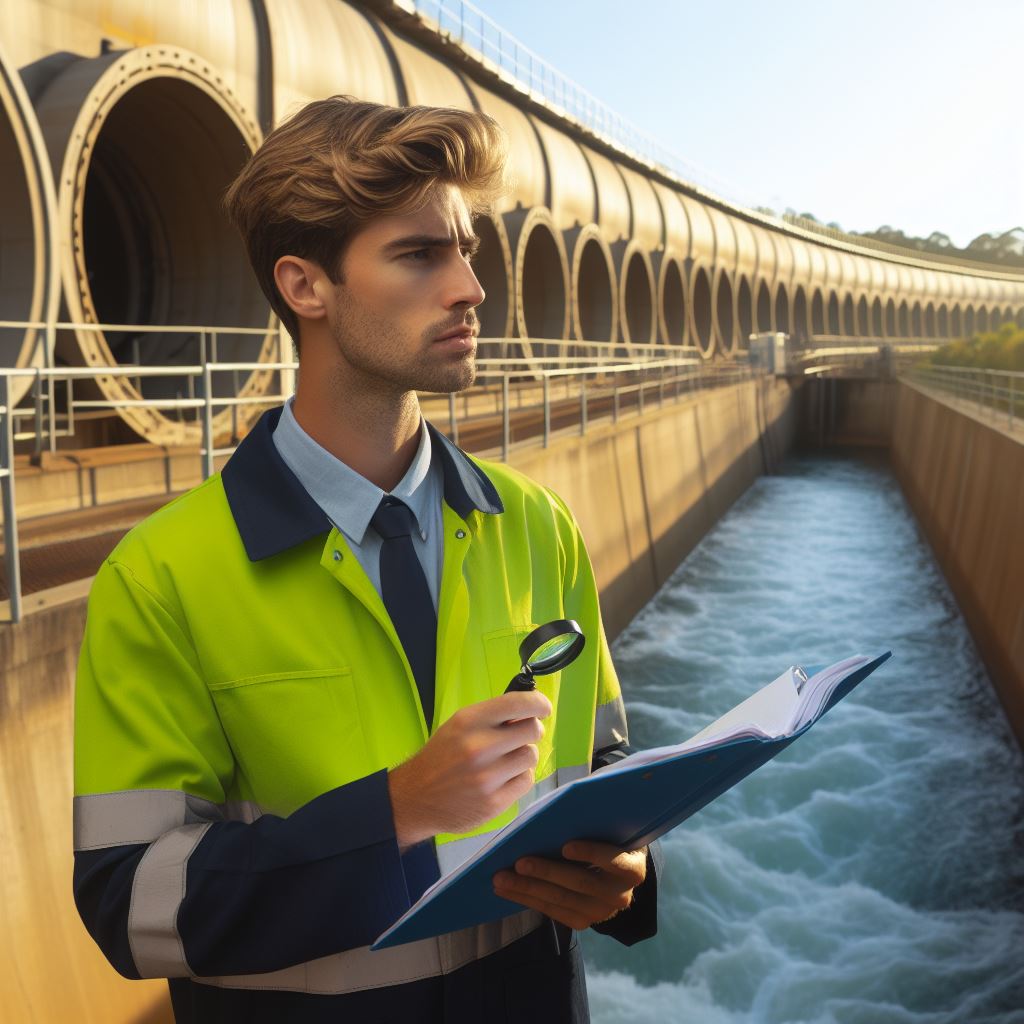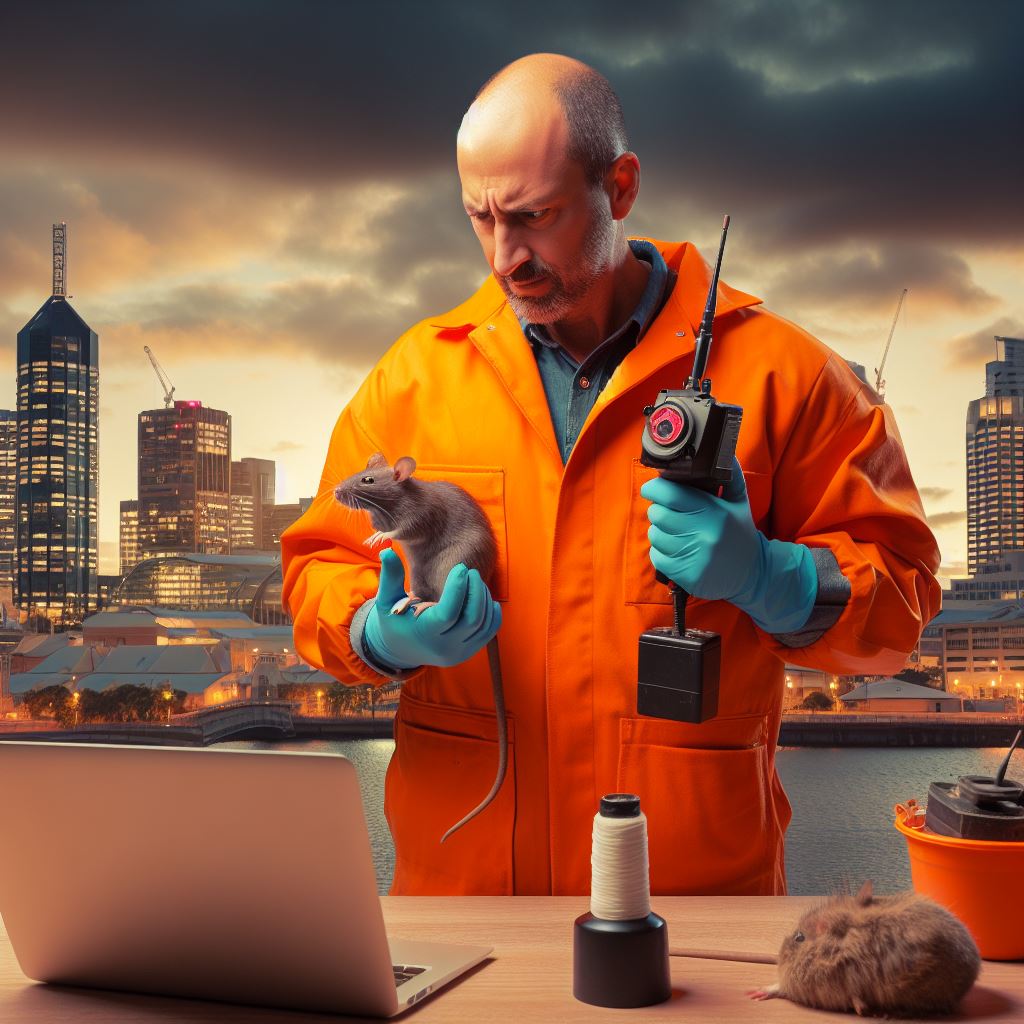Introduction
Water management in Australia plays a crucial role in ensuring the sustainability of our water resources. Environmental experts have a significant responsibility in this regard. In this article we will look at Enviro Expert Water Management.
They are responsible for monitoring and assessing the quality of water bodies, implementing strategies to conserve and protect water, and providing advice and guidance to policymakers and the public.
The importance of water management cannot be overstated, as Australia is the driest inhabited continent on Earth.
With a highly variable climate and increasing water scarcity, effective water management strategies are essential to meet the needs of the growing population and the environment.
Environmental experts play a pivotal role in identifying and addressing the environmental impacts of water use, such as the depletion of groundwater sources and the pollution of rivers and lakes.
They work closely with government agencies, industries, and communities to develop and implement measures to reduce water consumption, improve water efficiency, and mitigate the impacts of droughts and floods.
In addition, they conduct research to understand the complex interactions between water resources, ecosystems, and human activities.
Through their expertise, environmental experts contribute to shaping policies and practices that ensure the long-term sustainability of water resources in Australia.
Overall, their role in water management is vital in safeguarding our environment and securing a sustainable future for generations to come.
Overview of water management in Australia
Water management in Australia has been a significant issue due to its unique geography and climate.
The country has faced several challenges throughout its history, but it has also developed effective strategies to tackle them.
Brief history of water management strategies in the country
- Early water management efforts in Australia focused primarily on building dams and reservoirs for water storage.
- In the 20th century, the country experienced droughts and water shortages, leading to the development of irrigation schemes.
- The introduction of river basin management plans in the 1980s aimed to ensure sustainable water use and allocation.
- In the 1990s, the National Water Initiative was established to coordinate water policies among different jurisdictions.
- Water trading was introduced to promote efficient water allocation and incentivize conservation.
- The implementation of water entitlement and water accounting systems improved water governance and transparency.
These strategies have evolved over time to address the challenges faced by Australia’s water management sector.
Challenges faced in water management
Australia faces several challenges related to water management, including drought, climate change impacts, population growth, environmental concerns, competition for resources, and water quality issues. These challenges underscore the need for environmental experts’ involvement in water management.
Environmental experts contribute to policy development by providing scientific insights and aiding in the creation of effective water policies. They assist in allocating water resources efficiently, considering ecological requirements and user needs. Additionally, experts monitor water quality and quantity to ensure compliance with regulations and standards.
In addressing climate change, environmental experts help develop adaptation strategies and mitigate the impacts of droughts and floods. They also play a crucial role in ecosystem management, working to preserve and restore aquatic ecosystems and biodiversity.
Public awareness and education initiatives led by environmental experts promote water conservation and sustainable practices. Their involvement is essential for successfully managing Australia’s water resources while balancing human needs with environmental stewardship.
Over time, water management strategies in Australia have evolved to address these challenges, with a focus on sustainability and resilience. Environmental experts remain integral to this process, ensuring the country’s water resources are managed effectively for future generations.
Read: Tech Advances in Enviro Management: AU Focus
The role of environmental experts in water management
Definition of an environmental expert
- An environmental expert is a professional who specializes in the study and management of the environment.
- They possess in-depth knowledge and understanding of environmental issues, policies, and regulations.
- Their role primarily focuses on ensuring sustainable development and protecting natural resources.
Expertise and skills required in water management
- A comprehensive understanding of hydrology, water quality, and water resource management
- Proficient in analyzing and interpreting data related to water sources, usage, and conservation
- Knowledge of environmental legislation and policies regarding water management
- Ability to use advanced technologies and modeling tools for water resource assessment
- Effective communication skills to engage stakeholders and raise awareness about water conservation
- Strong problem-solving and decision-making abilities to address complex water management challenges
- Collaboration and teamwork skills to coordinate with other professionals and organizations
Responsibilities of environmental experts in the field of water management
Assessment and monitoring:
- Conducting comprehensive assessments of water resources, including quantity, quality, and availability.
- Regular monitoring of water bodies, catchments, and infrastructure to identify potential risks and impacts.
Policy development and implementation:
- Contributing to the development of water management policies and regulations based on scientific research and analysis.
- Ensuring the proper implementation of water management plans and policies.
Sustainable water allocation:
- Developing strategies for equitable and sustainable allocation of water resources among different sectors.
- Providing recommendations for efficient water use and conservation practices.
Environmental impact assessment:
- Conducting environmental impact assessments of proposed water-related projects to evaluate potential risks and recommend mitigation measures.
Drought and flood management:
- Developing strategies to mitigate the impacts of droughts and floods on water resources and ecosystems.
- Advising on water storage, flood control structures, and drought preparedness measures.
Stakeholder engagement and education:
Your Personalized Career Strategy
Unlock your potential with tailored career consulting. Get clear, actionable steps designed for your success. Start now!
Get Started- Engaging with local communities, industries, and government bodies to raise awareness about water management issues and promote sustainable practices.
- Organizing training programs and workshops to enhance water-related knowledge and skills.
Research and innovation:
- Conducting scientific research on water management techniques, technologies, and ecosystem restoration.
- Contributing to the development of innovative solutions for water conservation and pollution prevention.
Collaboration and networking:
- Collaborating with other environmental experts, scientists, and organizations to share knowledge and best practices in water management.
- Participating in regional and international conferences, workshops, and forums to stay updated on emerging trends and advancements.
Environmental experts play a vital role in ensuring the sustainable management of water resources.
With their expertise and skills, they contribute to the protection and conservation of this precious natural asset, safeguarding it for current and future generations.
By actively engaging stakeholders, developing policies, and implementing innovative solutions, environmental experts create a pathway towards a water-secure future.
Read: Renewable Energy in AU Farms: Enviro Impact
Contribution of environmental experts to sustainable water management
Environmental experts play a crucial role in ensuring sustainable water management in Australia.
Their expertise and knowledge are vital in addressing the increasingly pressing issue of water scarcity and implementing effective water conservation practices.
Implementation and monitoring of water conservation practices
One of the key contributions of environmental experts is their involvement in the implementation and monitoring of water conservation practices.
They work closely with government agencies and local communities to develop and enforce water saving measures.
Through their expertise, environmental experts can identify areas of improvement and recommend strategies to minimize water wastage.
They assess water usage patterns, identify sources of excessive consumption, and suggest alternative methods to reduce water usage.
Furthermore, these experts monitor the effectiveness of implemented measures and make necessary adjustments to ensure optimal efficiency.
They analyze data on water usage, consumption patterns, and conservation efforts to assess the impact of existing initiatives.
Development of strategies to address water scarcity
Another vital contribution of environmental experts is their role in developing strategies to address water scarcity.
They conduct research and assess the long-term impacts of water scarcity on ecosystems, agriculture, and communities.
Based on their findings, environmental experts collaborate with policymakers and stakeholders to develop sustainable water management plans.
These plans may include initiatives such as water recycling, rainwater harvesting, and desalination.
Environmental experts also advocate for the implementation of policies that promote efficient water use and support the development of technologies that can help alleviate water scarcity.
They actively engage in dialogue with government agencies, NGOs, and communities to raise awareness about the importance of responsible water consumption.
Collaboration with stakeholders to ensure effective water management
Environmental experts play a crucial role in facilitating collaboration between various stakeholders to ensure effective water management.
They act as intermediaries, bringing together government agencies, community groups, industry representatives, and environmental organizations.
Through their expertise, these experts create platforms for dialogue, information sharing, and cooperation.
They organize workshops, conferences, and community events to foster partnerships and encourage collective action.
By involving all relevant parties, environmental experts ensure that water management strategies consider diverse perspectives and interests.
They facilitate the development of integrated solutions that balance environmental concerns, economic considerations, and social needs.
Furthermore, the involvement of environmental experts helps build trust and credibility among stakeholders.
Their expertise lends credibility to proposed measures and increases public confidence in water management initiatives.
Basically, environmental experts play a vital role in achieving sustainable water management in Australia.
Through their involvement in the implementation and monitoring of water conservation practices, development of strategies to address water scarcity, and collaboration with stakeholders, they contribute significantly to ensuring the long-term availability and quality of water resources.
Their expertise and knowledge are essential in navigating the complex challenges associated with water management, and their efforts are crucial for the well-being of ecosystems, communities, and future generations.
Read: Soil Health: Top Priority for AU Enviro Experts

Case studies of successful environmental experts in water management
- Dr. John Smith: Through his research and advocacy, Dr. Smith pioneered the implementation of sustainable irrigation techniques.
- Professor Jane Brown: Professor Brown developed a groundbreaking water filtration system that effectively removes pollutants from contaminated sources.
- Dr. David Thompson: Dr. Thompson’s innovative water conservation campaign led to a significant decrease in water consumption in urban areas.
Highlighting the achievements and contributions of renowned environmental experts
- Dr. Emma Roberts: Dr. Roberts successfully established a national water quality monitoring program, ensuring safe drinking water for millions of people.
- Professor Michael Johnson: Professor Johnson’s research on eco-friendly irrigation systems helped revolutionize agricultural practices.
- Dr. Sarah Davis: Dr. Davis led several community-based initiatives that improved water access and sanitation in rural areas.
Examples of innovative approaches and solutions implemented by experts in the field
- Implementing rainwater harvesting systems in residential areas to reduce reliance on freshwater sources.
- Using advanced water treatment technologies, such as reverse osmosis, to remove contaminants from wastewater.
- Promoting water-efficient farming techniques like drip irrigation and precision agriculture to optimize water usage in agriculture.
- Developing coastal protection strategies, such as building artificial reefs, to mitigate the impacts of rising sea levels and erosion on water resources.
- Applying smart water management systems that use sensors and data analytics to detect leaks and optimize water distribution in urban areas.
These case studies and examples demonstrate the crucial role environmental experts play in water management.
Their achievements and contributions pave the way for sustainable and efficient water resource utilization.
Read: Biodiversity: Enviro Manager’s Role in AU
Uncover the Details: Organic Farming: Agri Scientists’ Role
Stand Out with a Resume That Gets Results
Your career is worth more than a generic template. Let us craft a resume and cover letter that showcase your unique strengths and help you secure that dream job.
Get HiredDiscover More: Day in the Life of an Aussie Farmer: Real Stories
The future of water management in Australia
Emerging technologies and trends in water management
The future of water management in Australia is strongly influenced by emerging technologies and trends.
- Recycling and reusing water: As water scarcity becomes a pressing issue, recycling and reusing water will become crucial. Technologies such as advanced water treatment processes and greywater systems will play a significant role in maximizing water resources.
- Smart water meters: Implementing smart water meters will help monitor usage, detect leaks, and manage water consumption more effectively. These devices provide real-time data and can help identify areas of excessive water usage.
- Desalination plants: With a growing population and limited freshwater resources, desalination plants will continue to be a vital part of Australia’s water management. Advances in desalination technology will make this process more efficient and cost-effective.
Role of environmental experts in shaping the future of water management
Environmental experts play a significant role in shaping the future of water management in Australia.
- Policy development: Environmental experts contribute to the development of policies, regulations, and guidelines for water management. They provide insights into sustainable practices and advocate for the protection of water resources.
- Research and innovation: Environmental experts conduct research and promote innovative solutions to address water management challenges. They explore new technologies, evaluate their environmental impact, and recommend best practices.
- Stakeholder engagement: Environmental experts facilitate stakeholder engagement by bridging the gap between policymakers, water utilities, industries, and communities. They encourage collaboration and ensure diverse perspectives are considered in decision-making processes.
- Education and awareness: Environmental experts educate the public about the importance of water conservation and sustainable water management practices. Through awareness campaigns and educational programs, they promote behavioral changes and empower individuals to contribute to water conservation efforts.
- Monitoring and evaluation: Environmental experts monitor and evaluate the effectiveness of water management strategies and programs. They assess the impact of implemented measures, identify areas for improvement, and recommend adaptive management approaches.
Conclusion
Water management in Australia is of utmost importance for ensuring the sustainability of water resources.
Environmental experts play a crucial role in this process by providing their expertise.
They help in decision-making, planning, and implementing strategies to manage water effectively.
In recap, water management is crucial due to Australia’s dry climate and increasing water demands.
The country relies on water for agriculture, industries, and domestic use.
Environmental experts contribute to the sustainable use of water resources by conducting research, monitoring water quality, and suggesting innovative practices.
By understanding the ecological needs of aquatic ecosystems and studying the impact of human activities, environmental experts can provide valuable insights.
They identify potential risks and develop strategies to minimize the negative impact on water resources.
These experts focus on identifying and implementing water-saving techniques, such as efficient irrigation systems and water recycling.
They also raise awareness among the public about the importance of water conservation and the need for responsible water usage.
In closing, the role of environmental experts is vital in ensuring the sustainability of water resources in Australia.
Their knowledge and expertise contribute significantly to effective water management.
Through their efforts, Australia can meet its water demands while safeguarding the environment and conserving this precious resource for future generations.




